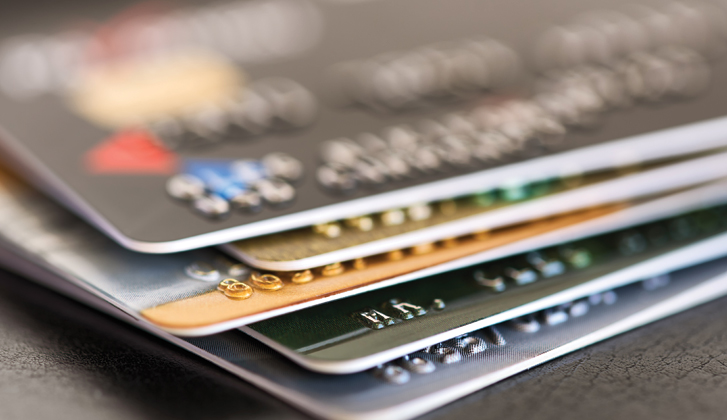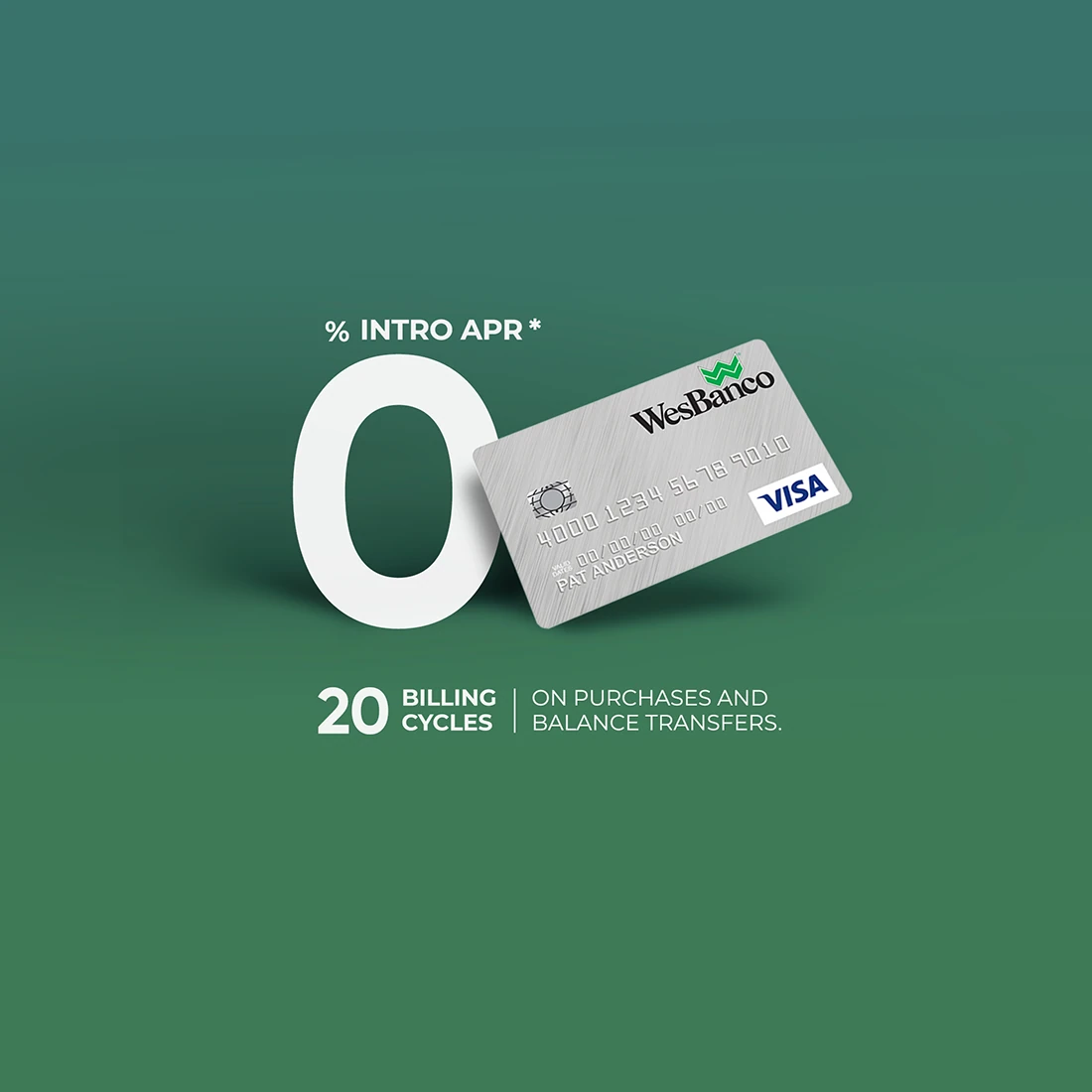NOTICE: Internet Explorer was retired by Microsoft on June 15th, 2022 and is no longer supported. This could change how you access Online Banking.
Learn More About Debit Cards

Debit cards are one of the most common forms of payment. In fact, according to Bankrate, 63% of people between 18 and 29 don’t bother with cash, checks, or a credit card, preferring to use their debit cards.
When you use a debit card, the amount of the payment is debited, or subtracted from, the checking account to which the card is linked. You spend $5, and $5 comes out of your account, sometimes instantly and sometimes a few days later, depending on how the purchase is processed.
There are generally no limits on the number of transactions you can make with a debit card in a single day. However, most debit cards have daily withdrawal limits, though they vary depending on the bank or card issuer. Larger banks tend to have the highest limits.
Debit Card Benefits
For ease of use, debit cards can’t be beat. You don’t have to worry about keeping cash in your wallet, and there’s always a record of how much you spent, and where, on your bank statement.
Many stores and other sellers prefer debit to credit cards because they pay lower fees on debit cards.
They’re accepted almost everywhere, in large part because most cards are part of either the Visa or MasterCard payment systems. In fact, many stores and other sellers prefer debit to credit cards because they pay lower fees on debit cards.
Fees
Debit cards usually have low—or no—direct fees. However, you’ll need to watch out for overdraft fees, possible out-of-network ATM fees, any applicable PIN transaction fees, and any monthly fees to maintain the checking account that the card is associated with.
Didn’t Make That Purchase
If someone makes an unauthorized charge on your debit card, you will need to work quickly to resolve the problem. The Electronic Fund Transfer Act provides protections for you: if you report your card stolen or lost within two days, your maximum financial liability is either $50 or the total of the unauthorized transactions, whichever is less. If you wait longer than two days, you may be liable for $500 or more—so it’s important to act quickly.
Overdraft Protection
Many banks offer overdraft protection on the debit cards they issue. Having it means that if you try to spend more than is in your account, the bank will cover that amount for you. Sounds great, but overdraft protection can be costly. In addition to the amount you’ll have to pay back, you’ll also be charged interest on the amount that is transferred to your account and often a fee as well.
Your bank or credit union must get your permission to provide overdraft protection—and it may actually work in your favor to decline. Without it, you can’t spend more than is in your bank account, which is a great way to help keep your actual spending in line with what you can afford. Of course, whether to use overdraft protection depends on how well you know your own spending habits. Having it can help you avoid occasional embarrassment in social situations.
Debit Cards V. Credit Cards
While credit cards and debit cards appear to be very similar, and you use them in a lot of the same ways, what happens after you use the card is completely different. With debit cards, the amount of a purchase is deducted directly from your bank account balance. But when you use a credit card, the amounts you spend are recorded, appear on your monthly statement, and must be paid back in full by the due date to avoid interest charges. There are some other differences that go beyond how the cards work:
Cash Withdrawals. In addition to purchases, debit cards are designed for cash withdrawals. If you use a machine within your bank network, you usually won’t pay any fees. But with a credit card, as soon as you withdraw the money, you’ll pay an upfront fee for the advance. And you’ll begin to accumulate a finance charge at a rate higher than your card’s APR (which is the rate you pay on purchases.)
Consumer Protections. Another difference between debit and credit cards is that if you buy defective merchandise with a debit card, you can’t withhold payment while your complaint is resolved. You’ve already paid. In contrast, your credit card provider will let you withhold payment while it investigates your claims in cases where you feel you shouldn’t have to pay. With a debit card, you have to investigate yourself, and there’s no assurance you’ll succeed in getting a refund.
Credit History. There is one area in which credit cards offer a real benefit that you don’t get with debit cards. Using a debit card to pay for purchases doesn’t help you build a strong credit history, since you’re not using credit. Of course, a strong credit history is not a guarantee when you are using a credit card. You still need to pay your bill on time, and pay it in full if you can.
Prepaid Debit Cards
Unlike a regular debit card, which gives you access to the amount in your checking account, a prepaid card is loaded with a certain amount of money. When that money has been spent, the card must either be reloaded or replaced.
Not all prepaid debit cards are created equal. Some have high fees that eat away at your balance. Not all provide consumer protections, such as replacing the value on a lost or stolen card. And some can be used in only one store or chain of stores. So it’s important to pay attention to the details before buying one.
Content is for informational purposes only and is not intended to provide legal or financial advice. The views and opinions expressed do not necessarily represent the views and opinions of WesBanco.
While we hope you find this content useful, it is only intended to serve as a starting point. Your next step is to speak with a qualified, licensed professional who can provide advice tailored to your individual circumstances. Nothing in this article, nor in any associated resources, should be construed as financial or legal advice. Furthermore, while we have made good faith efforts to ensure that the information presented was correct as of the date the content was prepared, we are unable to guarantee that it remains accurate today.
Neither Banzai nor its sponsoring partners make any warranties or representations as to the accuracy, applicability, completeness, or suitability for any particular purpose of the information contained herein. Banzai and its sponsoring partners expressly disclaim any liability arising from the use or misuse of these materials and, by visiting this site, you agree to release Banzai and its sponsoring partners from any such liability. Do not rely upon the information provided in this content when making decisions regarding financial or legal matters without first consulting with a qualified, licensed professional.
Limited Time Credit Card Offer
For a Limited Time 0% intro APR* for the first 20 Billing Cycles!
Personal Credit Cards
Limited Time Offer
0% Intro APR* for
20 Billing Cycles

